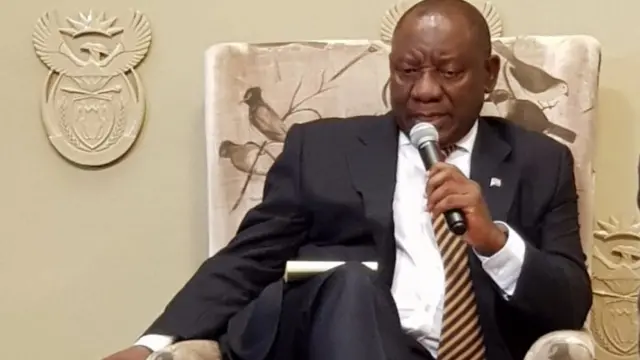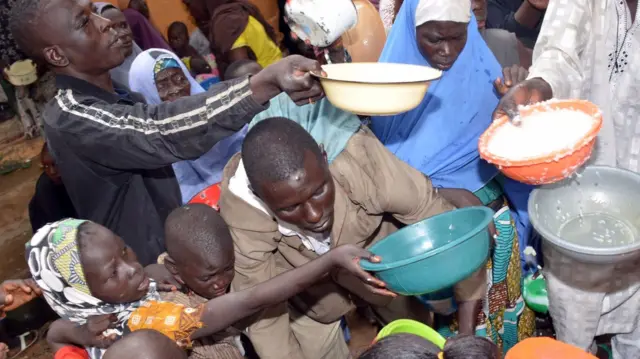Scroll down for this week’s storiespublished at 18:18 BST 25 May 2018
We'll be back on Monday
BBC Africa Live
Dickens Olewe & Lucy Fleming
That's all from BBC Africa Live this week. Keep up-to-date with what's happening across the continent by listening to the Africa Today podcast or check the BBC News website.
A reminder of today's wise words:
Quote MessageEvery man is a prince in his own bed."
A Chewa proverb sent by Joseph Amazuwa Chirwa in Lilongwe, Malawi
Click here and scroll to the bottom to send us your African proverbs.
And we leave you with this picture of Tanzanian model Miriam Odemba attending the screening of The Wild Pear Tree at the Cannes Film Festival in southern France. It is one of our best photos from this week.
 Image source, AFP
Image source, AFP









